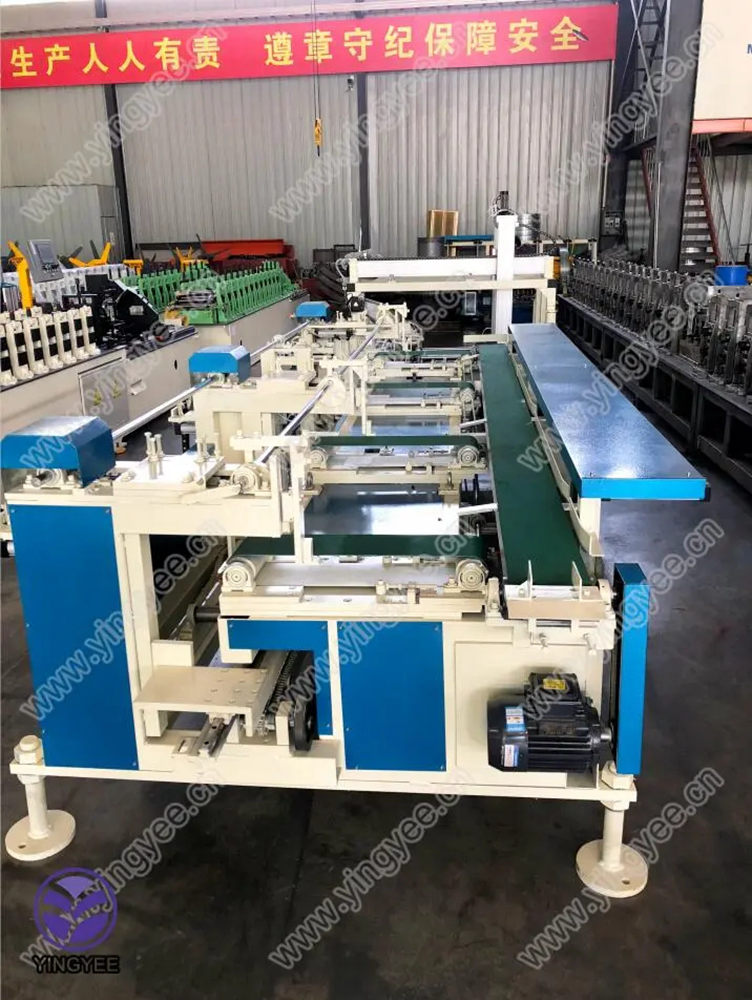The Evolution and Significance of Drywall Forming Machines in Modern Construction
In the dynamic world of construction, the advent of technology has revolutionized various processes, and amongst these innovations, the drywall forming machine stands out as a pivotal development. These machines are designed specifically for the production of drywall, also known as gypsum board, which is a primary material used in building interior walls and ceilings. This article explores the evolution, working mechanisms, advantages, and the future of drywall forming machines in the construction industry.
Evolution of Drywall Technology
Historically, drywall originated in the early 20th century as a more convenient alternative to traditional plaster. As construction needs evolved, so did the methods of producing drywall. Initially, the production process was manual, requiring intensive labor and resulting in inconsistent quality. However, with advancements in manufacturing technology, the drywall forming machine was introduced, vastly improving the efficiency and quality of drywall production.
How Drywall Forming Machines Work
Drywall forming machines utilize a continuous production process to create sheets of drywall. The process begins with the mixing of gypsum powder, additives, and water to form a slurry. This slurry is then poured onto a moving conveyor belt, where it is spread evenly to create a continuous sheet. The machine also incorporates a paper backing that is placed on one side of the slurry as it is being formed. Once the drywall sheet reaches the desired thickness, it goes through a series of drying processes to remove excess moisture. Finally, the sheets are cut to standard sizes and prepared for shipping.
These machines are equipped with advanced automation technologies, enabling precise control over the thickness, density, and overall quality of the drywall being produced. Additionally, modern drywall forming machines have been designed to minimize waste and enhance production rates, resulting in significant cost savings for manufacturers.
Advantages of Using Drywall Forming Machines
1. Increased Efficiency One of the most significant advantages of drywall forming machines is their ability to produce large quantities of drywall in a short period. This efficiency is crucial for meeting the demands of fast-paced construction projects.

2. Consistent Quality Automated systems ensure that each sheet of drywall meets strict quality standards, reducing variability that often comes with manual production.
3. Cost-Effectiveness By streamlining the production process and reducing labor costs, drywall forming machines contribute to lowering the overall cost of producing drywall. This economic benefit is passed on to builders and, ultimately, to consumers.
4. Sustainability Modern drywall forming machines often incorporate technologies that reduce waste and use environmentally friendly materials. As sustainability becomes a critical concern in construction, these machines promote greener practices by optimizing resource use.
The Future of Drywall Forming Machines
As technology continues to advance, the future of drywall forming machines seems promising. Innovations such as artificial intelligence (AI) and machine learning are poised to enhance the efficiency and quality of drywall production even further. AI can optimize production schedules, predict maintenance needs, and improve quality control. Furthermore, as the construction industry shifts towards sustainable practices, there will be increased demand for machines that can produce eco-friendly drywall solutions.
In addition, the trend of modular construction and off-site building is likely to influence the design and functionality of drywall forming machines. As builders seek to increase efficiency and reduce on-site labor, drywall machines that can create prefabricated wall panels might become increasingly popular.
Conclusion
In conclusion, drywall forming machines have become indispensable in the modern construction landscape. Their ability to produce high-quality drywall efficiently and sustainably has transformed how interior walls are constructed. As technology continues to evolve, these machines will undoubtedly play an even more critical role in shaping the future of the construction industry. Embracing these innovations will not only enhance productivity but also contribute to a more sustainable and economically viable construction process. In a world where building standards and consumer expectations are continually rising, drywall forming machines stand at the forefront of meeting these demands.